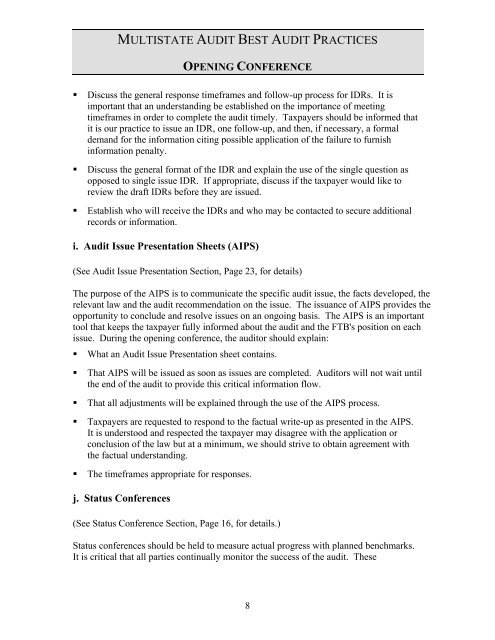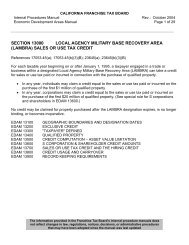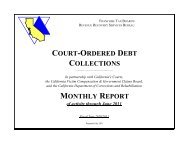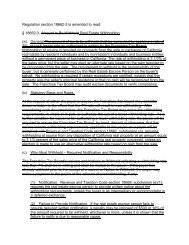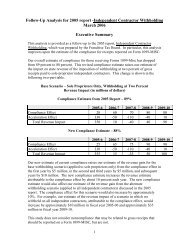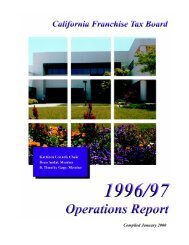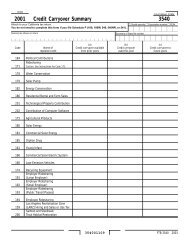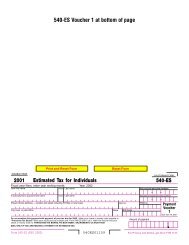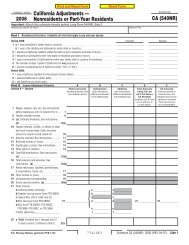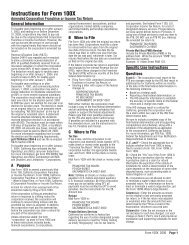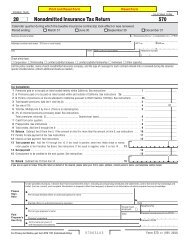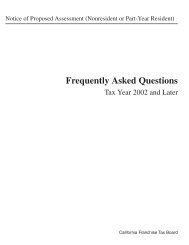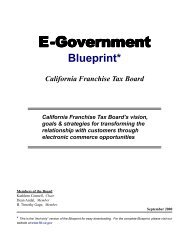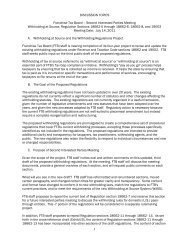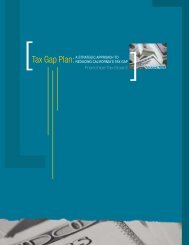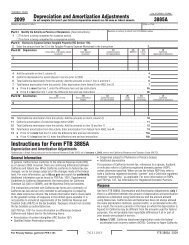Multistate Audit Best Audit Practices - California Franchise Tax Board
Multistate Audit Best Audit Practices - California Franchise Tax Board
Multistate Audit Best Audit Practices - California Franchise Tax Board
You also want an ePaper? Increase the reach of your titles
YUMPU automatically turns print PDFs into web optimized ePapers that Google loves.
MULTISTATE AUDIT BEST AUDIT PRACTICES<br />
OPENING CONFERENCE<br />
Discuss the general response timeframes and follow-up process for IDRs. It is<br />
important that an understanding be established on the importance of meeting<br />
timeframes in order to complete the audit timely. <strong>Tax</strong>payers should be informed that<br />
it is our practice to issue an IDR, one follow-up, and then, if necessary, a formal<br />
demand for the information citing possible application of the failure to furnish<br />
information penalty.<br />
Discuss the general format of the IDR and explain the use of the single question as<br />
opposed to single issue IDR. If appropriate, discuss if the taxpayer would like to<br />
review the draft IDRs before they are issued.<br />
Establish who will receive the IDRs and who may be contacted to secure additional<br />
records or information.<br />
i. <strong>Audit</strong> Issue Presentation Sheets (AIPS)<br />
(See <strong>Audit</strong> Issue Presentation Section, Page 23, for details)<br />
The purpose of the AIPS is to communicate the specific audit issue, the facts developed, the<br />
relevant law and the audit recommendation on the issue. The issuance of AIPS provides the<br />
opportunity to conclude and resolve issues on an ongoing basis. The AIPS is an important<br />
tool that keeps the taxpayer fully informed about the audit and the FTB's position on each<br />
issue. During the opening conference, the auditor should explain:<br />
What an <strong>Audit</strong> Issue Presentation sheet contains.<br />
That AIPS will be issued as soon as issues are completed. <strong>Audit</strong>ors will not wait until<br />
the end of the audit to provide this critical information flow.<br />
That all adjustments will be explained through the use of the AIPS process.<br />
<strong>Tax</strong>payers are requested to respond to the factual write-up as presented in the AIPS.<br />
It is understood and respected the taxpayer may disagree with the application or<br />
conclusion of the law but at a minimum, we should strive to obtain agreement with<br />
the factual understanding.<br />
The timeframes appropriate for responses.<br />
j. Status Conferences<br />
(See Status Conference Section, Page 16, for details.)<br />
Status conferences should be held to measure actual progress with planned benchmarks.<br />
It is critical that all parties continually monitor the success of the audit. These<br />
8


